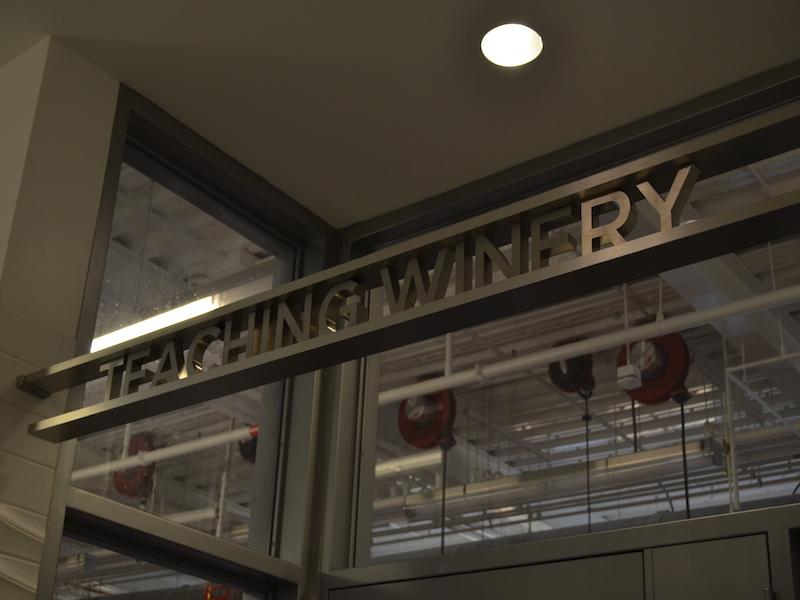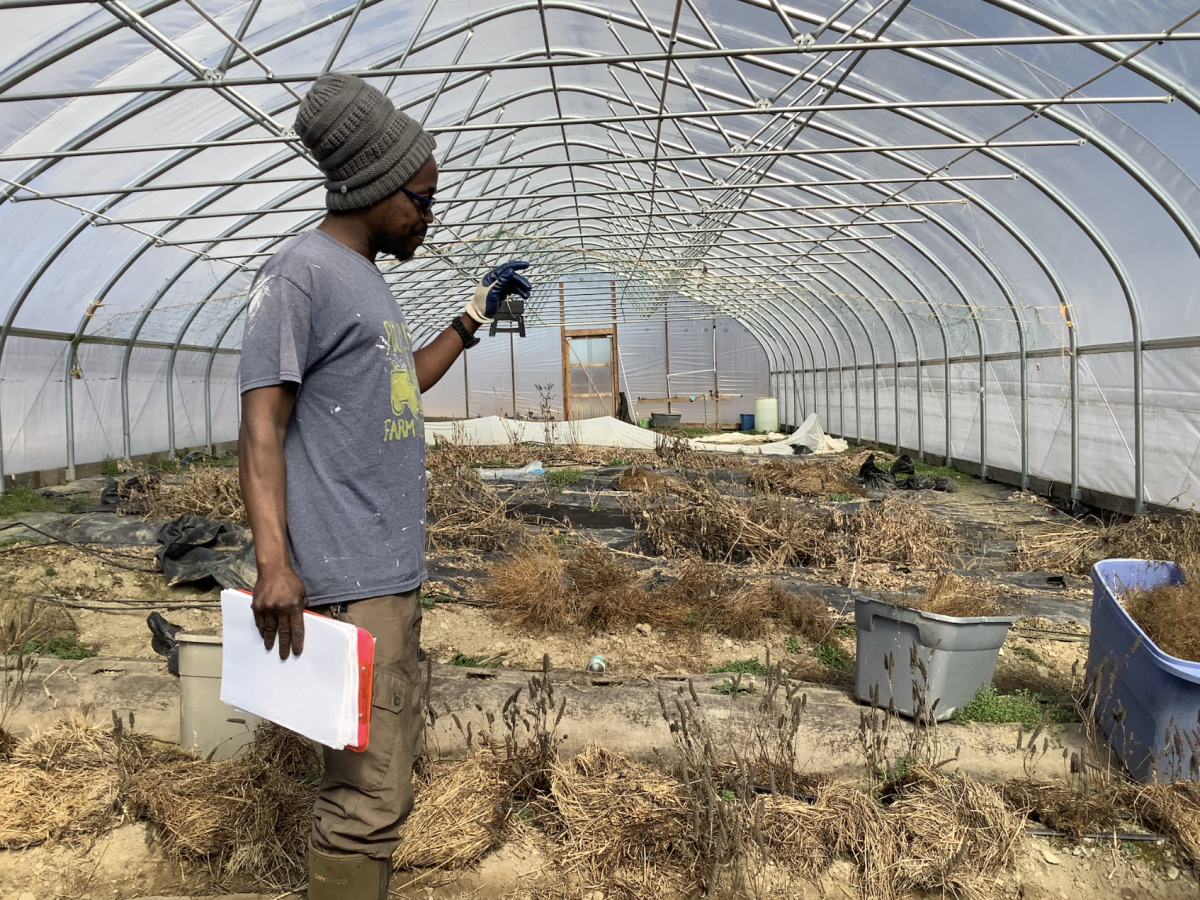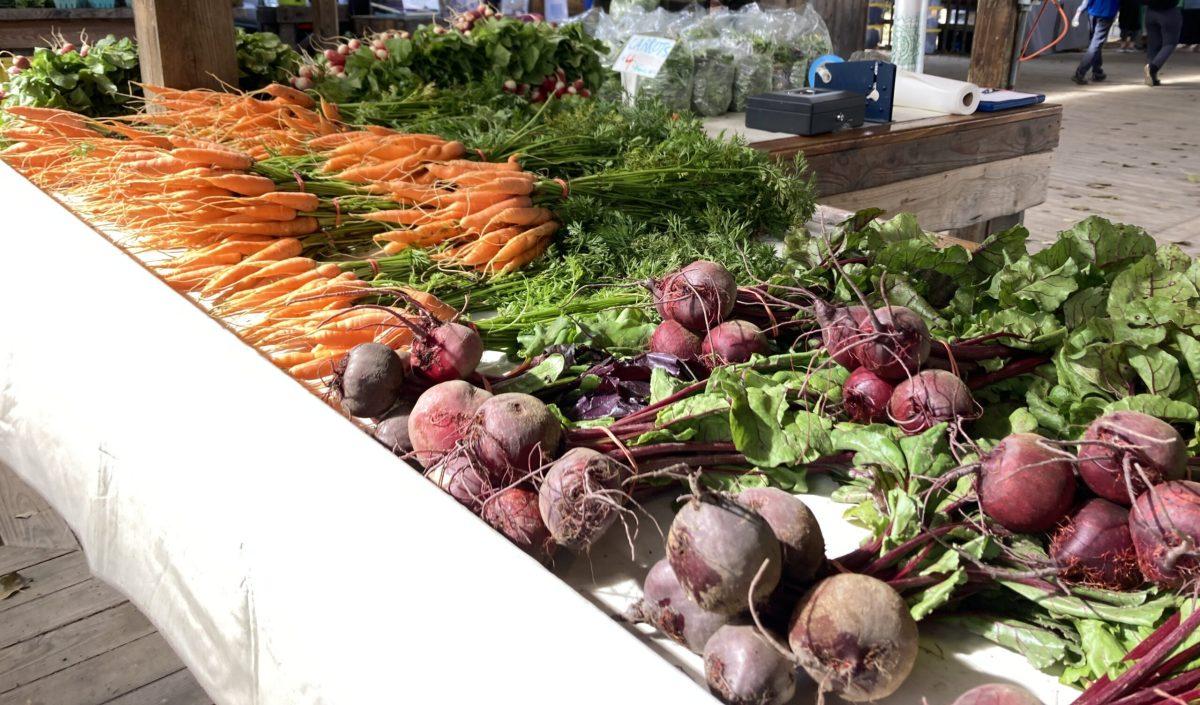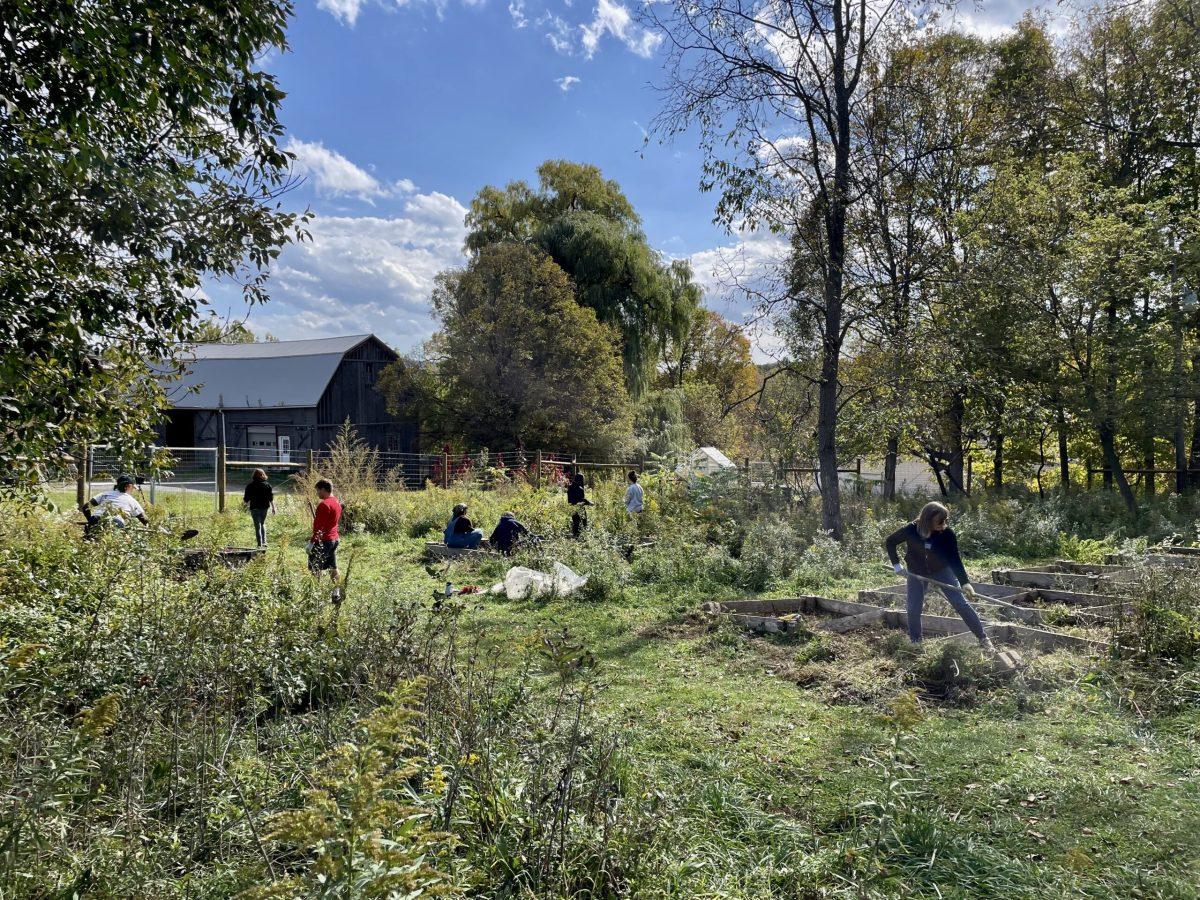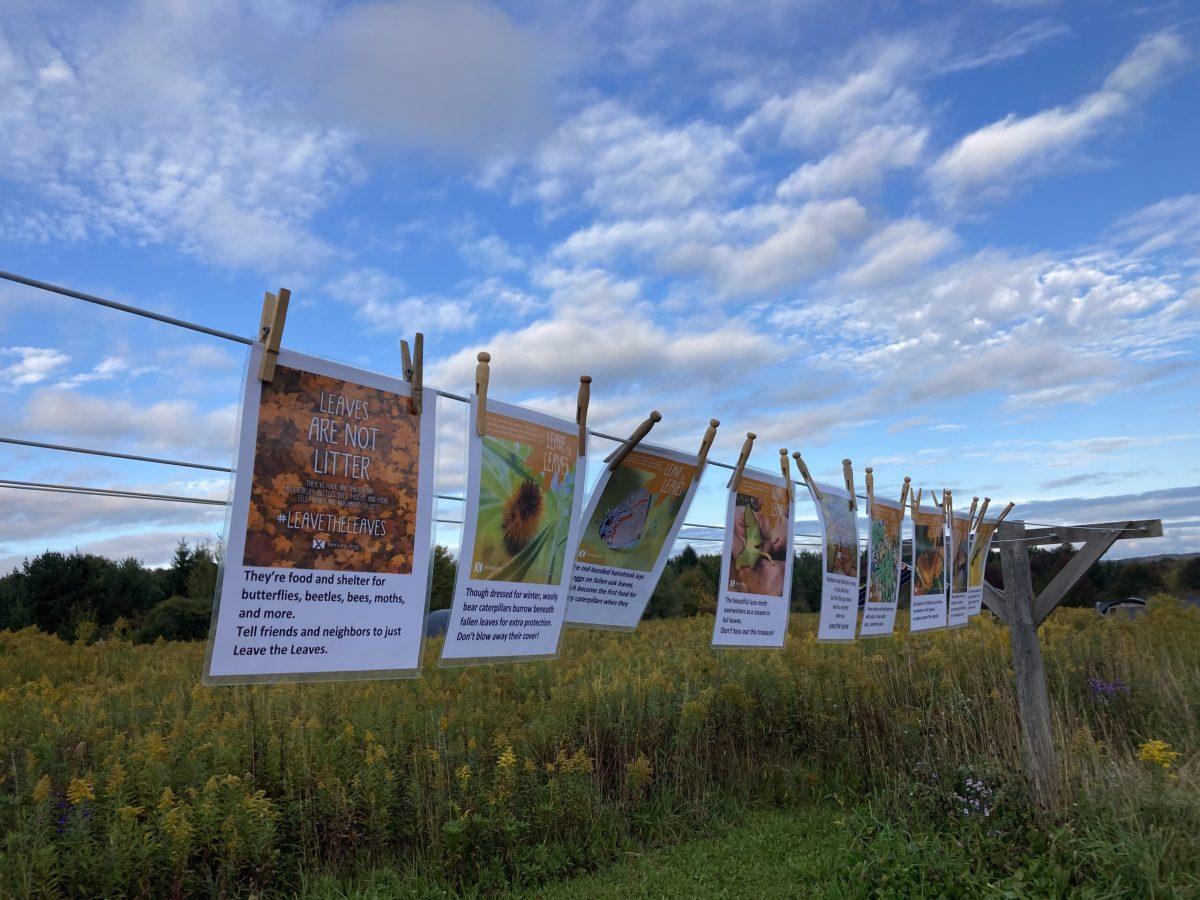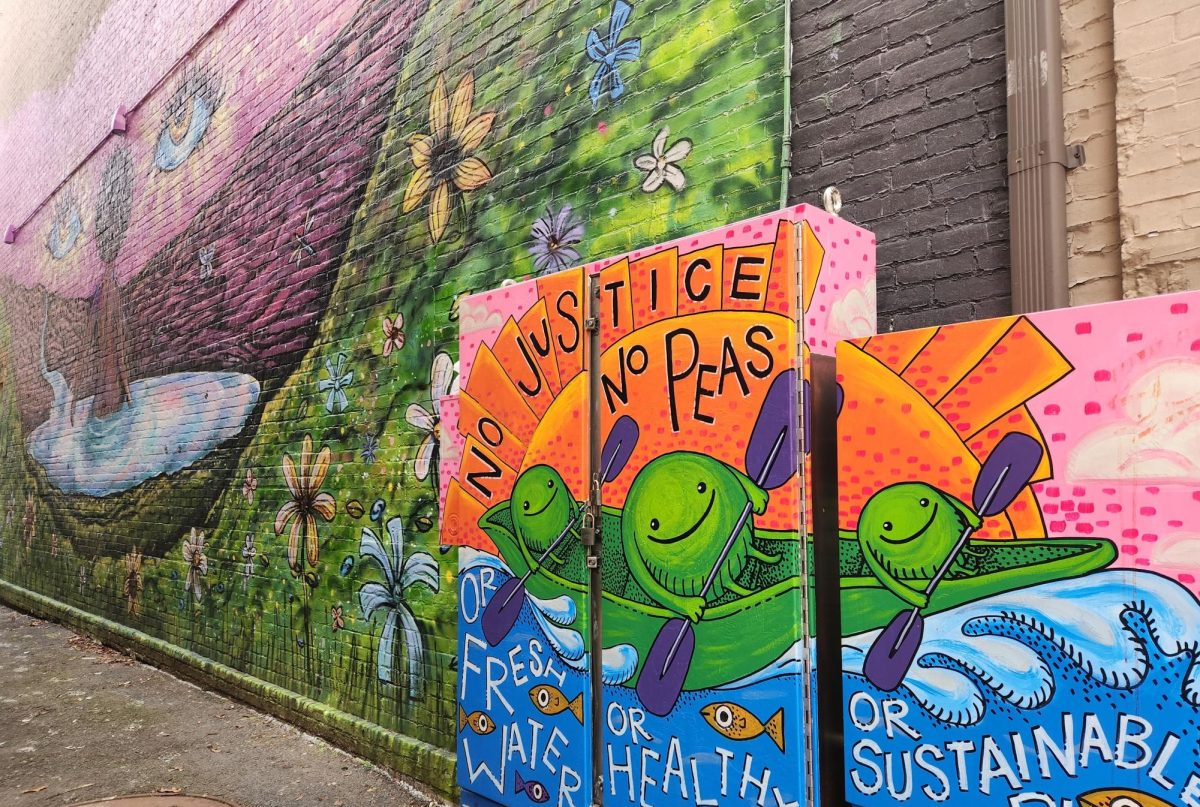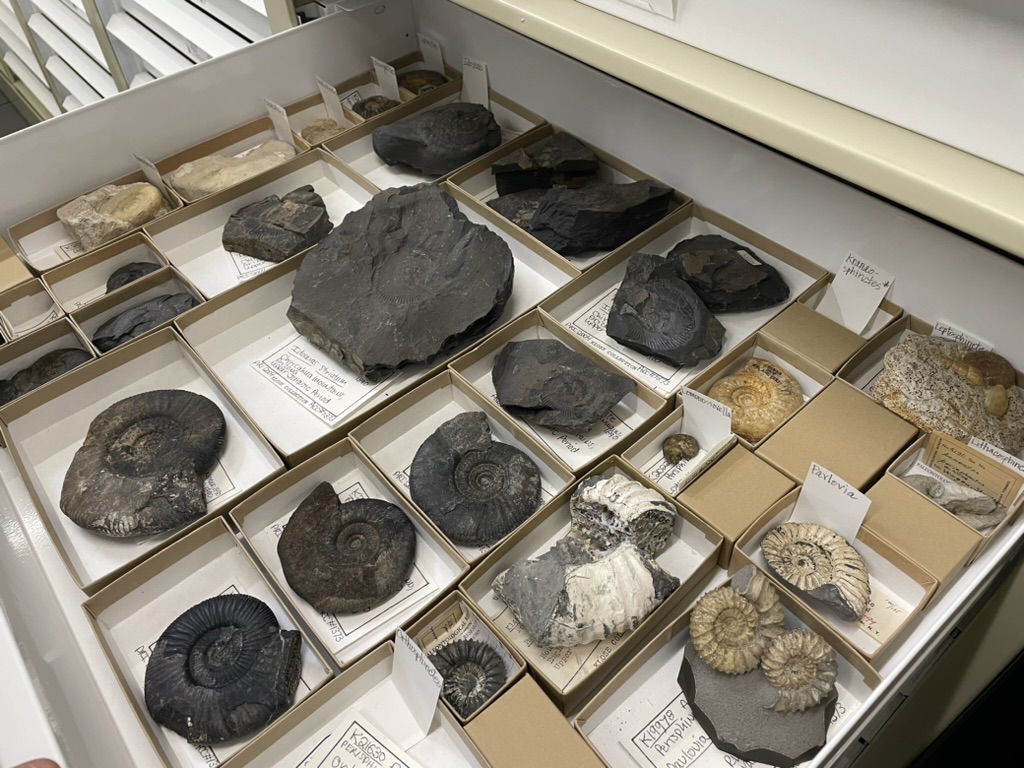For one Cornell senior, a homemade wine experiment gone wrong turned into a possible career path.
“This is not inspiring…Freshman year me and my friend were like, why don’t we make some wine with grape juice?”, she said, explaining how she chose to take her first Viticulture and Enology course.
“We looked it up online and bought jugs of grape juice and baker’s yeast from the store and made it in our dorm room fridge”, she said. “It was gross, and we didn’t drink any of it because it was disgusting.”
From pruning, to harvesting, and bottling wine, Cornell students are learning all about vines and wines. In the Finger Lakes region of Upstate New York, there’s no shortage of high quality wineries and lakeviews to accompany them. While Cornell University has played a role in the area’s wine industry for decades, now students have the opportunity to become an integral part and learn to produce their own products.
Cornell’s teaching winery opened in July 2013, and was a large investment made by the university. The $105 million facility has contributed to growing the Viticulture and Enology program—otherwise known as V&E—and has allowed the addition of majors and minors, as opposed to smaller elective courses within the agriculture school that existed prior.
The new facility, filled with small-scale equipment, allows a handful of students to work at a time, and also mirrors what real-life wineries and vineyards use to produce their wines.
“There’s only so many staff that are teaching viticulture and enology, said Dwayne Bershaw, an Enology professor at Cornell. “We have lab classes in the teaching winery and getting more than 15-20 students in a lab starts to get unwieldy. It’s hard to handle that many, and there’s only so much equipment.”
Bershaw teaches upper-level winemaking courses, focused on harvesting the grapes, pressing them, and waiting through the fermentation process while simultaneously testing sugar levels.
The V&E courses change seasonally, depending on how the grapes need to be treated.
“In the winter time, we’ll be finishing the wines, filtering them and getting them ready and bottling them in the spring,” said Bershaw, assuring that there will always be something to do.
“It’s not as busy as the harvest time, but there’s still lots of things to do and learn about when grapes aren’t growing.”
Senior Biology major Alanna Todd is a viticulture minor and a teaching assistant for the introductory wine course. She’s taking part in a group project right now where she must harvest and produce a wine.
“My group has Chardonnay, but it’s probably going to be rotten because of all this rain.” said Todd.
While Chardonnay is the name of a commonly known white wine, it is also the name of the grape that produces it. Originating in the Burgundy region of France, it is well-suited for cooler climates and does fairly well in the Finger Lakes if harvested before the autumn rain comes.
Todd explained that after the harvest, the groups have to press the grapes, rack them— “filter out all the junk that falls in,”—inoculate the wine, then keep track of the fermentation “and all that crazy stuff,” test the sugar throughout and then say, ‘“Okay, fermentation’s over.”
Aside from the wine she drinks in class, Todd admits that she isn’t a huge wine drinker.
“In order to be a T.A., we have to participate by drinking the wines,” she said, “But I don’t actually drink wine on a daily basis…maybe two days a week in labs. We don’t even get to keep any of the wines we make in class, obviously, because most of the people are under 21.”
Cornell’s teaching winery focuses more on experimenting than bottling and selling. Bershaw explained that if the school did plan on selling students’ products, an additional marketing and selling component to the program would need to be added.
“Maybe we’d think of expanding later on someday”, Bershaw said. “But for now we’ll let the program grow a little bit”.

